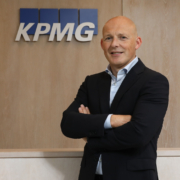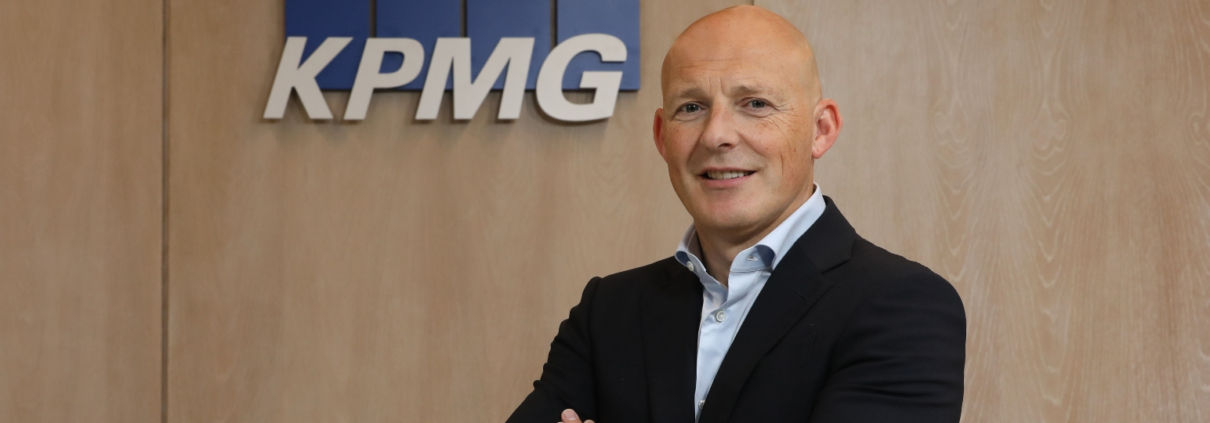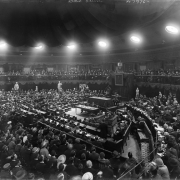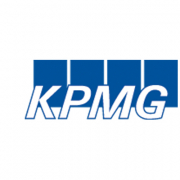Johnny Hanna, Partner in Charge of KPMG in Northern Ireland: The US and Northern Ireland’s long-standing relationship
The visit of Joe Biden to Belfast earlier this year rubber stamped a long running relationship between the US and Northern Ireland, writes Johnny Hanna, Partner in Charge of KPMG in Northern Ireland.
The visit of Joe Biden to Belfast earlier this year rubber stamped a long running relationship between the US and Northern Ireland which has been apparent during consecutive US political leaderships.
Bill Clinton played a key role the Good Friday Agreement talks process, Hilary Clinton has been a good friend to the region as Vice President (and, of course, as the current Chancellor of Queen’s University Belfast), while Barack Obama told Belfast on a visit in 2013 that “America will always stand by you”.
Comforting words to hear from a global superpower, but has that political commitment been borne out in Northern Ireland’s economic performance?
According to HMRC trade statistics, in 2022 the US was Northern Ireland’s second largest export destination for goods with £1.1 billion worth heading across the Atlantic, 11.4% of total exports. Imports, meanwhile, amounted to £411 million, making the US the province’s third largest import destination accounting for 6.7% of the total.
The data suggests a solid trading partnership, but it is worth noting that total exports of goods to the US are down from £1.7 billion in 2016 while imports stood at £897 million.
Bill Clinton played a key role the Good Friday Agreement talks process, Hilary Clinton has been a good friend to the area as Vice President (and, of course, as the current Chancellor of Queen’s University Belfast), while Barack Obama told Belfast on a visit in 2013 that “America will always stand by you”.
It is clear that trade between the two regions fluctuates, no doubt influenced heavily by currency movements, but there are significant opportunities to boost activity, particularly exports from Northern Ireland to the US and inward investment from the US, in the future.
That is something which President Biden also believes, given his appointment of Joe Kennedy III as US Special Envoy for Northern Ireland.
Senator Kennedy has spent his first few months getting to know Northern Ireland and exploring how he can link buyers in the world’s largest economy to eager suppliers in the province for goods, and also for services.
In addition, and perhaps most pertinently, he has been looking at opportunities for US investors in Northern Ireland. The path is already well worn with Allstate, Baker McKenzie and Microsoft amongst a plethora of blue-chip US corporate names which have major bases in Northern Ireland. In total, US companies have created 13,000 jobs and £1.5 billion worth of investment in Northern Ireland in the 10 years to 2022, according to the Department for the Economy, much of it high value and technology related.
While a talented workforce, the partnership of world-class universities and a low cost of living have always been a draw, the interest of US investors in Northern Ireland has been piqued further by the Windsor Framework. Under the proposals put forward to replace the Northern Ireland Protocol arrangement, the province will have dual market access to both the UK and European Union markets.
In total, US companies have created 13,000 jobs and £1.5 billion worth of investment in Northern Ireland in the 10 years to 2022, according to the Department for the Economy, much of it high value and technology related.
Such access is truly unique to Northern Ireland and would allow our indigenous companies and inward investors to service two lucrative marketplaces. Demand to take advantage of this unique selling point is borne out by recent news reports which have suggested billions of dollars of US investment is ready to pour into Northern Ireland if the Windsor Framework leads to political stability here.
Given there is no functioning Executive at present, the latter point is key and will hopefully be resolved soon but in the meantime enquiries continue to emerge from corporates keen for a base which gives them access to both markets.
Perhaps as, if not more, important to the investment case is the fact Northern Ireland also has the potential to reduce the main rate of corporation tax. The UK government has sanctioned the devolution of corporation tax-setting powers to the Northern Ireland Executive in 2015, powers which if implemented would allow it to reduce the rate to 12.5% (15% for very large businesses), on a par with the Republic of Ireland and well below the UK rate of 25%.
Dual market access combined with a low rate of corporation tax makes an extremely compelling environment for business. Combine that with a series of growth and city deals unlocking at least £1 billion of investment, a dynamic and collaborative education system which works with industry to produce the right type of skills and one of the highest standards of living in the world and the offer is outstanding.
The Northern Ireland/US relationship has always been close, with the province relying on US support during difficult political times over the years. Now, we are in the position to offer something back in the form of a unique investment opportunity which will benefit both economies.
As President Biden said on his visit to Belfast, we have the potential to “unleash this incredible economic opportunity, which is just beginning”.
 About the author: Johnny Hanna is Partner in Charge of KPMG in Northern Ireland.
About the author: Johnny Hanna is Partner in Charge of KPMG in Northern Ireland.











